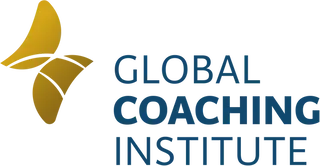Have you ever considered your origins and the way they’ve influenced your approach to life and your work?
I began my professional life as an Occupational Therapist, so when I connected this morning with a group of OTs who have all become coaches it was like coming home. We spoke a language we all immediately recognised.
Eventually the conversation came around to something OTs are famous for, problem solving. My colleagues work in a range of contexts: executive coaching, business development, health care delivery and designing new models of service delivery. They all recognise the benefits of their “can do” attitude, whatever setting they find themselves in.
My own training no doubt enhanced the pragmatic approach I’d developed growing up on a farm. Working then with people who were taking up their roles in life after having major accidents or strokes taught me about unimaginable change and resilience. For OTs nothing is impossible; challenges are merely a provocation to go in search of solutions.
While this problem solving capacity is a real asset, it also has its limitations. Problem solving is a lens, but like all lenses, it operates at a specific focal length.
A problem solving mindset comes with certain assumptions….most obviously that life experiences are problems to be managed, rather than simply experienced or perhaps viewed with curiosity.
Unpack the problem before trying to solve it
At the Global Coaching Institute we think a little differently about the challenges clients sometimes bring to coaching. As I’ve written previously, events that initially seem like disturbances can be a valuable stimulus for our growth. Restlessness prompts us to think about what’s important to us in life and to look further afield for new career prospects. The inability to win support for an idea can signal that we’re missing something important and need to go back to the drawing board. Even body symptoms and illness can tell us its time to readjust our lifestyle. When caught early enough these cues prove invaluable. That’s why we welcome and become curious about them.
Rather than trying to immediately solve personal and organisational challenges it’s important to unpack them and to fully understand the feedback and meaning they hold for us.
Einstein famously said you cannot solve problems with the same thinking that created them. Yet that’s exactly what we are doing when we jump into a problem solving mindset without getting upstream of an issue to understand what causes and contributes to it. More often than not the immediate and presenting problem is not the core issue.
In conversations with leaders, I notice that they too can fall into this trap. They sometimes think about the challenges facing their organisations in ways that are immediate and reactionary. When we do this, it’s a like trying to drive a car with your nose pressed up against the windscreen. We miss the bigger picture. Having a strategic perspective is a hallmark of effective leadership – and it requires detachment and perspective.
Coaches too risk getting bogged down in detail and adopting a problem-oriented perspective. When training people to become coaches we encourage them to ask questions from the perspective of someone in a helicopter.
Anyone who has trained with us will recognise these terms:
-
Hover above the issue.
-
Don’t get caught in the detail.
-
Look for the patterns.
-
Understand the landscape.
-
Map the territory.
-
Avoid getting caught in the mud.
Step back before you respond
When we take a few moments to step back before we respond, we can discover the core issue or even the benefits of the situation we find ourselves in. And then, if problem-solving is required we can apply these skills knowing we are tackling the real problem, not just the immediate surface issue.
Of course, all professions lend themselves to a particular way of viewing the world. Surgeons develop precision, insurers learn to analyse risk, marketers learn how to differentiate their customers, salespeople learn to turn the relationship into a sale.
My colleagues this morning had learnt the value of a coaching mindset. It allows them to explore issues from a strategic perspective. They have an ability to adjust the lens through which they view the world. If you are interesting in learning to adopt a coaching mindset, let’s continue the conversation.
Questions to ask yourself
-
What mindsets and paradigms did your early training cultivate in you?
-
What are the strengths and potential limitations of your professional practice?
-
How have you buillt on and extended your initial skillset?





